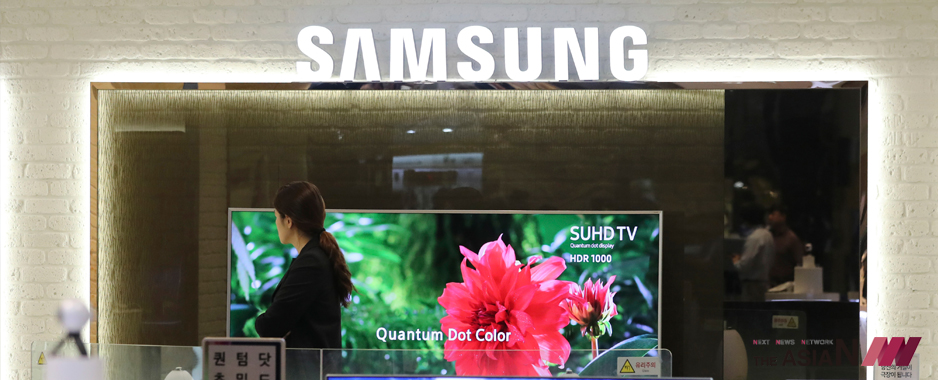
Satellite TV channels boom in Bangladesh

While a satellite TV broadcasting policy is under consideration by the government, the private satellite television sector in Bangladesh has been flourishing day by day. These TV channels were established with the primary aim to transmit news and entertainment, and the network of channels has been expanding with a continuous growth of TV viewers.
A satellite TV broadcasting policy has been formulated by the Bangladesh Information Ministry following consultation with journalist organizations, media personnel and others concerned. The draft policy is being considered by the higher authorities of the government and it will require approval of the Cabinet before implementation. Experts believe that the policy will help to improve the standard of TV media in the country.
During the birth of independent Bangladesh in 1971, the country had only one TV channel named Bangladesh Television (BTV), which was owned by the government. Since the BTV’s network was based on a terrestrial system, it could reach every corner of the country. The terrestrial system of BTV is still in operation while it has also introduced a satellite channel.
The first private satellite TV channel of Bangladesh- ATN Bangla was set up in Dhaka on 15 July 1997. Since then, private TV channels began to appear one after another. At present, 23 private satellite television stations are functioning and airing news and current affairs as well as entertainment programs. Another 13 private satellite television stations are in the offing since the government has decided in principle to give them licenses.

Back-up policy underway
The government had decided to allow satellite TV channels in the private sector in the 1990s and in that decade, three private TV stations – ATN Bangla, Channel I and Ekushey Television – were launched in Dhaka. According to government policy, private TV channels are allowed to operate with a satellite system only and channels are following that policy. During the last decade, a number of private TV channels mushroomed and in the tenure of the present Awami League government, more then twelve new satellite TV stations were licensed. Most of these are spewing out popular, attractive and objective news, views and programs around the clock. However, the TV channels vary greatly in popularity and profile.
These private channels are also being watched in Europe, America, the Middle East, South-east Asia, and Australia. The news and entertainment programs of these televisions are hot favorites with Bangladeshi expatriates living abroad. The expatriates can know about the developments in their country through news bulletins and watch programs in their mother tongue Bangla through these satellite TV channels.
Among the 22 private TV channels in Bangladesh, at least 5 or 6 channels are 24-hour news channels. They only telecast news and news related talk shows, although mixed (entertainment and news) channels also air talk shows on different issues. All the private satellite TV channels broadcast programs 24 hours a day.
The rising private TV sector has created employment opportunities in Bangladesh. Young people, especially fresh graduates from varsities, are being recruited into these TV channels. Some television authorities often arrange training programs for employees with the cooperation of renowned TV stations of the world. By this time, several private training centers on TV journalism and related jobs have also cropped up locally with private initiative.

Shortage of well-trained personnel
Media, particularly the electronic media, including television has expanded in the country over the last couple of years. But, the main problem standing in the way of its desired development is the lack of well-trained newsmen and skilled technical personnel like cameramen, video editors as well as well-equipped graphics department. It is reassuring that a large number of universities, including the public and private ones, have introduced journalism departments. In addition, there are some institutes that offer certificate courses for the media men. But the courses in the public and private universities need to be more practical oriented.
Funding is a critical issue for any private television channel in Bangladesh. The channels depend on commercial advertisements provided by business houses for funds. In fact, the advertisements given by private companies are the only source of income for TV channels. Therefore, most of the TV channel authorities are more interested in procuring advertisements than producing quality programs. Some channels allocate more time for advertisements, and as a result, frequent screening of ads disturbs viewers and they switch over to other channels. The use of too many ads is a common phenomenon in private TV channels in Bangladesh that hinders development of the media. The owners of TV channels should take care in this regard so that they do not lose viewers.
One of the basic problems many private TV channels face is the lack of modern equipment. Even if they have modern equipment, sometimes there is a shortage of efficient personnel to use them. It is the owners of TV channels who can take steps to procure the state-of-the-art equipment because the excellence of a particular channel depends not only on quality news and programs, but also on efficient use of modern equipment.
Electronic media, particularly private television channels, are expanding in the country on a large scale. The number of viewers is also on the rise during the last couple of years particularly in almost all the remote villages, as satellite facilities have been expanded. Experts are of the view that a TV policy guideline would help to improve the standard of TV media in the country and that the viewers would enjoy better news and programs through this electronic media.



